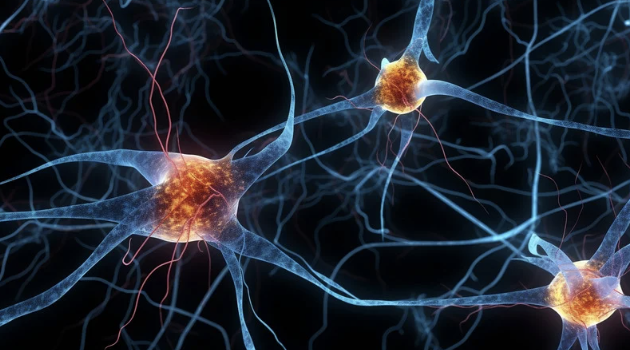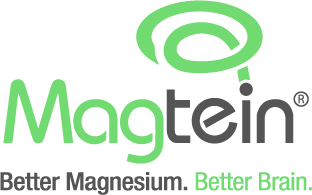Understanding Nootropics
The term nootropics refers to nutrients and compounds that support cognitive performance, including memory, focus, learning, and mental clarity. The word originates from the Greek noos (mind) and tropos (to turn or guide), emphasizing their role in optimizing brain function.
While the concept of “smart drugs” has been popularized in media, true nootropics focus on long-term brain support rather than short-term stimulation. Nutrients, amino acids, and botanicals with neuroprotective and neuro-supportive properties can all fall under this category.
Clinically studied nootropics often support one or more of the following mechanisms:
- Enhancing neurotransmitter balance (acetylcholine, GABA, dopamine)
- Supporting neuroplasticity and synaptic efficiency
- Reducing oxidative stress and inflammation
- Optimizing cerebral blood flow and energy metabolism*

In particular, natural nootropics such as citicoline, L-theanine, Bacopa monnieri, and magnesium L-threonate (Magtein) each influence distinct pathways within the brain.*
How Nootropics Support Brain Function
The brain requires immense energy and precise communication between billions of neurons to function optimally. Nootropics help sustain this efficiency through several mechanisms:
- Neurotransmitter Modulation: Nootropics influence the release and uptake of key messengers like glutamate, acetylcholine, and GABA – balancing stimulation and relaxation for improved focus and calm alertness.*
- Neuroplasticity and Synaptic Density: Certain compounds, such as magnesium L-threonate, promote synaptic plasticity – the brain’s ability to form and strengthen connections. This is crucial for learning, adaptability, and memory retention.*
- Energy Metabolism and Mitochondrial Support: The brain consumes nearly 20% of the body’s energy. Nutrients like magnesium and B vitamins assist in ATP production, supporting sustained cognitive endurance and reduced mental fatigue.*
- Neuroprotection: By buffering oxidative stress and supporting cellular repair, nootropics contribute to long-term brain health and resilience – especially under conditions of stress or aging.*

Magtein: A Brain-Focused Form of Magnesium
Among the most researched nootropics is Magtein (magnesium L-threonate), developed by MIT researchers to specifically support brain magnesium levels. Unlike other magnesium salts that act primarily in the muscles or gut, Magtein crosses the blood-brain barrier, directly influencing neuronal activity and plasticity.*
Magnesium is essential for more than 600 enzymatic reactions and plays a central role in neurotransmission and synaptic regulation. Within the brain, it modulates NMDA (N-methyl-D-aspartate) and AMPA (α-amino-3-hydroxy-5-methyl-4-isoxazolepropionic acid) receptors, both of which are critical for learning and memory processes.
Clinical studies – including those published in Neuron (2010), Journal of Alzheimer’s Disease (2016), and Sleep Medicine X (2024) – have demonstrated that magnesium L-threonate supplementation may:
- Support working memory, learning ability, and cognitive flexibility*
- Promote relaxation and improve sleep quality through balanced neurotransmission*
- Support focus and next-day mental clarity*
Because it enhances brain magnesium levels, Magtein fits naturally within the nootropic category as a foundation nutrient that optimizes neural efficiency and long-term cognitive health.*
Integrating Nootropics Into a Healthy Routine
Nootropics work best when integrated into a holistic lifestyle that includes:
- Balanced Nutrition: Emphasize whole foods, omega-3 fats, and magnesium-rich vegetables.
- Consistent Sleep: Deep sleep consolidates memory and supports magnesium-dependent brain repair.
- Mental Engagement: Learning new skills, reading, or practicing mindfulness reinforces neural pathways that nootropics help support.*
- Stress Regulation: Chronic stress depletes magnesium and affects focus – making restorative practices essential.*
Magtein complements these practices by maintaining healthy neuronal signaling and enhancing the brain’s ability to adapt, learn, and recover from daily stressors.*

Summary: Building a Smarter, Resilient Brain
Nootropics represent a forward-looking approach to cognitive health – supporting the brain’s natural capacity to perform, adapt, and recover. Within this landscape, Magtein (magnesium L-threonate) stands out as a scientifically supported, foundational nootropic that nourishes brain pathways from the cellular level up. By combining consistent magnesium support with nutrient-dense foods, quality sleep, and daily mental engagement, individuals can foster long-term focus, memory, and emotional resilience.*
References
- Slutsky I, Abumaria N, Wu LJ, et al. Enhancement of learning and memory by elevating brain magnesium. Neuron. 2010;65(2):165-177.
- Liu G, Weinger JG, Lu ZL, Xue F, Sadeghpour S. Efficacy and Safety of MMFS-01, a Synapse Density Enhancer, for Treating Cognitive Impairment in Older Adults: A Randomized, Double-Blind, Placebo-Controlled Trial. J Alzheimers Dis. 2016;49(4):971-990. doi:10.3233/JAD-150538
- Hausenblas HA, Lynch T, Hooper S, Shrestha A, Rosendale D, Gu J. Magnesium-L-threonate improves sleep quality and daytime functioning in adults with self-reported sleep problems: A randomized controlled trial. Sleep Med X. 2024;8:100121. Published 2024 Aug 17. doi:10.1016/j.sleepx.2024.100121
- Hewlings SJ, Kalman DS. A randomized, double-blind, placebo-controlled, comparator trial evaluating Magtein® magnesium supplement on quality of life as related to levels of stress, anxiety, fear and other indicators. J Am Coll Nutr. 2022;41(7):673-683.
These statements have not been evaluated by the Food and Drug Administration. This product is not intended to diagnose, treat, cure, or prevent any disease.



